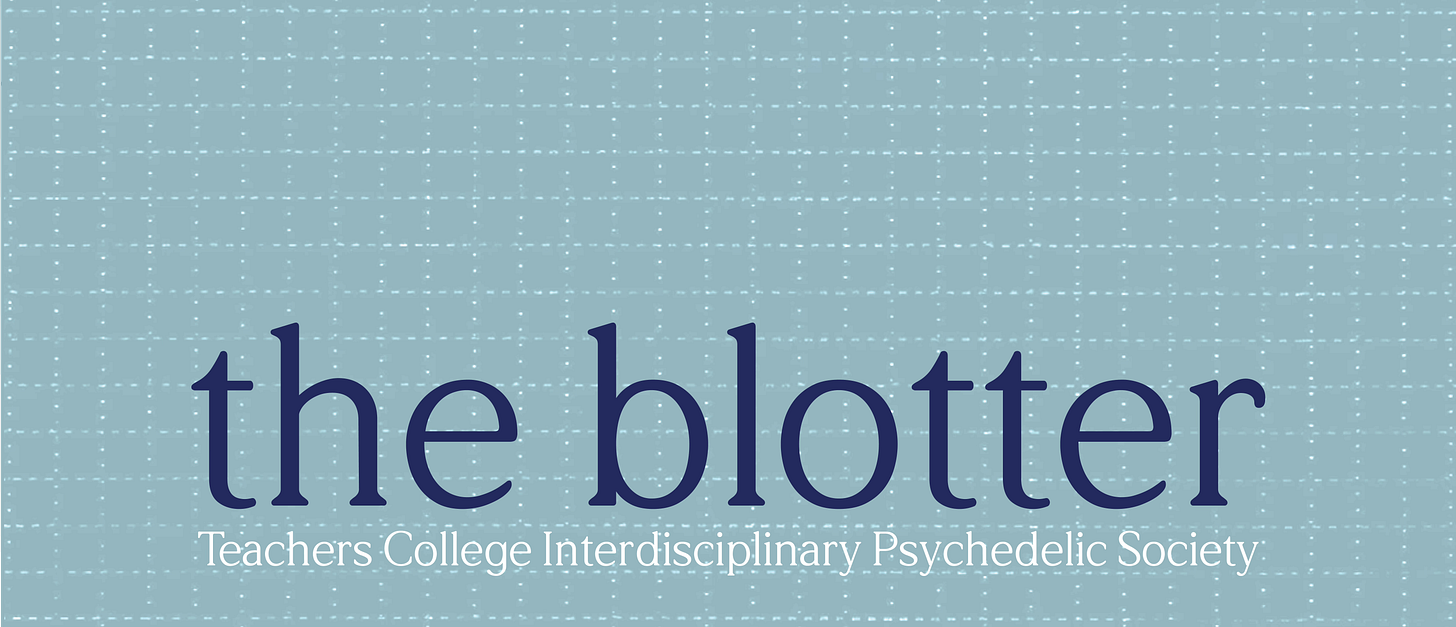As a Jew who fasts each year on Yom Kippur (the holiest day on the Jewish calendar), I wanted to share about my experience with the spiritual and mindful practice and its associated altered states of consciousness—something that might resonate with the TCIPS community and readers of The Blotter.
Yom Kippur is the second of the two Jewish “High Holidays,” the first of which being the Jewish New Year, Rosh Hashanah. While Rosh Hashanah is a day of joy and celebration, Yom Kippur is one of atonement. During the 10 days between the two holidays, or the “Ten Days of Repentance” / “Days of Awe,” we reflect on our sins from the prior year. Finally, on Yom Kippur we ask for forgiveness from both God and those we have wronged.
We fast on Yom Kippur both as a way to mindfully atone as well as to show our solidarity with the Jewish people’s suffering. This year, we will fast from sunset on October 11th until sunset on the 12th. Fasting, within the larger spiritual practice of Yom Kippur, can transport us to an altered state of consciousness, not unlike those experienced through meditation or psychedelics. By depriving ourselves of food, we reduce the energy delivered to the brain, which naturally slows down our thoughts, diminishes our focus on the physical world, and allows us to enter a contemplative space. This heightened state of mindfulness can bring deeper clarity and insight, similar to how meditation or psychedelics can help us to move beyond the everyday sensory realm into a more psychical, internal one.
While participating in this sacred act, many Jews attend services which provide for even more reflection. The most meaningful part of this service for me is the Viddui, a confessional prayer during which everyone stands and beats their chests while reciting an alphabetical series of sins. Here are a few lines from the prayer:
טָפַֽלְנוּ שֶֽׁקֶר.
tah-fahl-noo sheh-kehr
We have added falsehood upon falsehood; We have joined with evil individuals or groups;
יָעַֽצְנוּ רָע.
ya’atznoo rah
We have given harmful advice;
כִּזַּֽבְנוּ. לַֽצְנוּ.
kee-zahv-noo lahtz-noo
We have deceived; we have mocked.
Praying alongside the whole congregation makes me feel wholly connected to them, even when I do not even know them personally. Together, we acknowledge our sins and make a commitment to be better people to God and to humanity.
I also appreciate the fact that we are encouraged not only to pray for forgiveness, but to actually act by reaching out to those we may have harmed and apologizing. Reflecting on the prior year while fasting, I usually become fairly emotional as I remember what is truly important in life: being my authentic self and cherishing my time with loved ones. In the past, I have texted individual people with whom I wanted to make amends. I have also reached out to my friends and family members whom I perhaps did not explicitly wrong, but whom I may have taken for granted. I feel extreme amounts of gratitude and love for them and cannot help but share these emotions with them via text or voice message (I love voice messages). Fasting, reflecting, and attending services all allow me to have profound, spiritual realizations about my life and relationships that I might overlook on a daily basis.
Although the act of fasting is not what one could call “fun” (I always get super hangry by like 2pm), I am grateful for a day of mindfulness and reflection. That said, it is important to recognize that fasting is not feasible or appropriate for everyone. Jewish law emphasizes the preservation of health above all else, so those whose physical or mental health may be compromised by fasting—such as those with chronic illness, eating disorders, or other health conditions—are instructed to abstain and can honor Yom Kippur through other means, such as reflection, prayer, or acts of kindness.
After a long day of atonement and cleansing our souls, I enjoy breaking the fast among family and friends. While eating our meals of bagels and lox, kugel, brisket, and other Jewish delicacies, we share our insights with one another and feel a true sense of love, connection, and community.
Yom Kippur reminds me to tell my family and friends that I love them—and to make amends with those I have wronged—not only on Yom Kippur but also throughout the year. The act of reflection, whether through fasting or other mindfulness practices, allows us to deepen our interpersonal connections and live with greater intention. To those who are fasting this year, I wish you an easy fast and a day of spiritual reflection.
G’mar Chatima Tovah!
By Dana Lane






amazing article....beautiful.:)